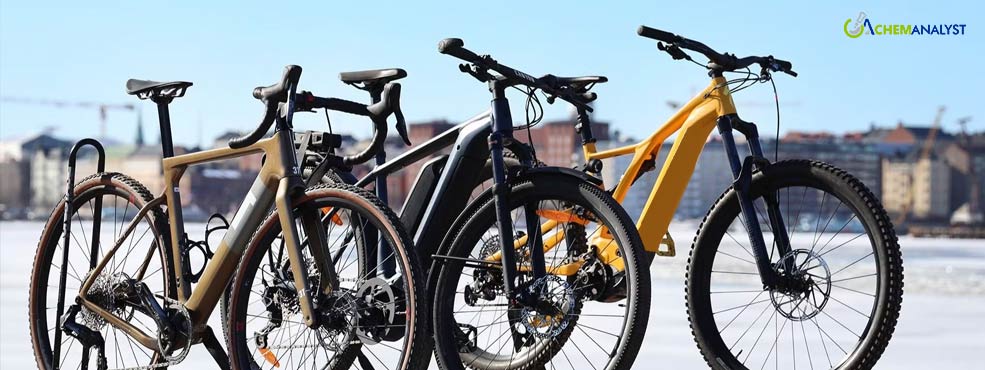Welcome To ChemAnalyst

Schwalbe has achieved a significant leap in its commitment to sustainability by incorporating discarded fishing nets into its bicycle tire manufacturing process, resulting in an increase in the utilization of recycled and renewable materials from 70% to 80%. The German company is utilizing Seawastex recycled nylon material derived from discarded and unusable fishing nets, which would otherwise contribute to environmental waste. This recycled material serves as a complete replacement for petroleum-based nylon in the carcass of Schwalbe's Green Marathon tire, as highlighted in the company's announcement on February 29.
Seawastex, the recycled nylon material, is sourced from discarded fishing nets collected by Taiwanese carcass manufacturer Formosa Taffeta in Taiwan. These nets are gathered both from fisheries and the sea, providing a sustainable source for the production of Seawastex. The carcass, which constitutes approximately 10% of the weight of the Green Marathon tire, undergoes a meticulous process of collection, cleaning, and chemical recycling into caprolactam. The resulting material is then spun into new nylon yarn and woven into the Seawastex carcass, delivering the same quality characteristics as conventional nylon.
Felix Jahn, the Head of the CSR Department at Schwalbe, underscored the positive impact of the initiative, mentioning that it had allowed them to elevate the proportion of recycled and renewable materials in the tire to 80%, merely six months after the introduction of the Green Marathon. He further explained that this approach reduces dependence on petroleum-based materials like new nylon and contributes to a reduction in CO2eq emissions. The company plans to progressively enhance the proportion of Seawastex in its tires in the medium term.
The entire process, from the collection and recycling of fishing nets to the production of the new material, occurs in Taiwan, ensuring minimal transportation emissions. Overall, Schwalbe estimates that Seawastex saves 49% CO2eq emissions compared to conventional nylon carcasses. Additionally, the Green Marathon tire, with its comprehensive sustainable features, achieves a total of 41% CO2eq savings compared to its predecessor model.
Beyond the utilization of Seawastex, the Green Marathon tire incorporates various other eco-friendly elements, including recovered carbon black from Pyrum, fair-trade natural rubber, silica extracted from rice husk ash, recycled rubber, recycled steel wire, and a commitment to avoiding the use of any new synthetic rubber. This holistic approach to sustainability positions Schwalbe as a leader in environmentally conscious bicycle tire manufacturing, emphasizing the importance of utilizing recycled materials to reduce environmental impact throughout the entire product life cycle.
We use cookies to deliver the best possible experience on our website. To learn more, visit our Privacy Policy. By continuing to use this site or by closing this box, you consent to our use of cookies. More info.
